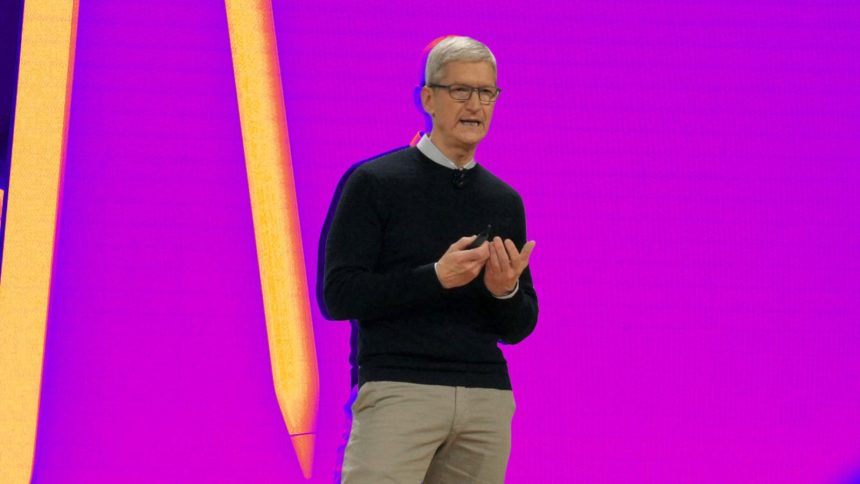In the realm of artificial intelligence (AI), Apple’s recent shareholder meeting sparked discussions on transparency and the company’s AI endeavors. Despite the rejection of a proposal calling for transparency in AI use, Apple’s CEO, Tim Cook, assured shareholders of groundbreaking advancements in Generative AI.
The proposal, put forth by AFL-CIO Equity Index Funds, aimed to shed light on Apple’s ethical adoption of AI technology. However, shareholders voted against this measure along with other proposals related to equal employment policies, civil liberties, and human rights. On the contrary, they approved the board slate and executive compensation plan.
Apple’s decision aligns with its strategic shift towards artificial intelligence following the cancellation of an electric car project. The proposal emphasized concerns such as potential bias, privacy violations, and job displacement due to automation. Apple remains undeterred by the recent setback and has reaffirmed its dedication to unveiling its generative AI plans later this year, with a potential showcase of further details anticipated at its annual developers conference in June.
Tim Cook emphasized Apple’s significant investments in AI, highlighting the transformative potential of generative AI in enhancing user productivity and problem-solving capabilities. While Apple is yet to unveil competing products like OpenAI’s GPT or Google’s Gemini models, Cook hinted at a major announcement later this year regarding generative AI advancements.
Apple’s integration of generative AI into its software and upcoming operating system update iOS 18 underscores its dedication to innovation in AI technology. With a focus on machine learning features like the Vision Pro headset and system-level access with tailored silicon, Apple aims to elevate user experiences through cutting-edge AI developments.
Despite the rejection of transparency proposals, Apple’s commitment to advancing generative AI signals a pivotal moment in the company’s technological evolution. As Apple continues to push boundaries in AI innovation, users can anticipate transformative features that redefine their digital experiences.






